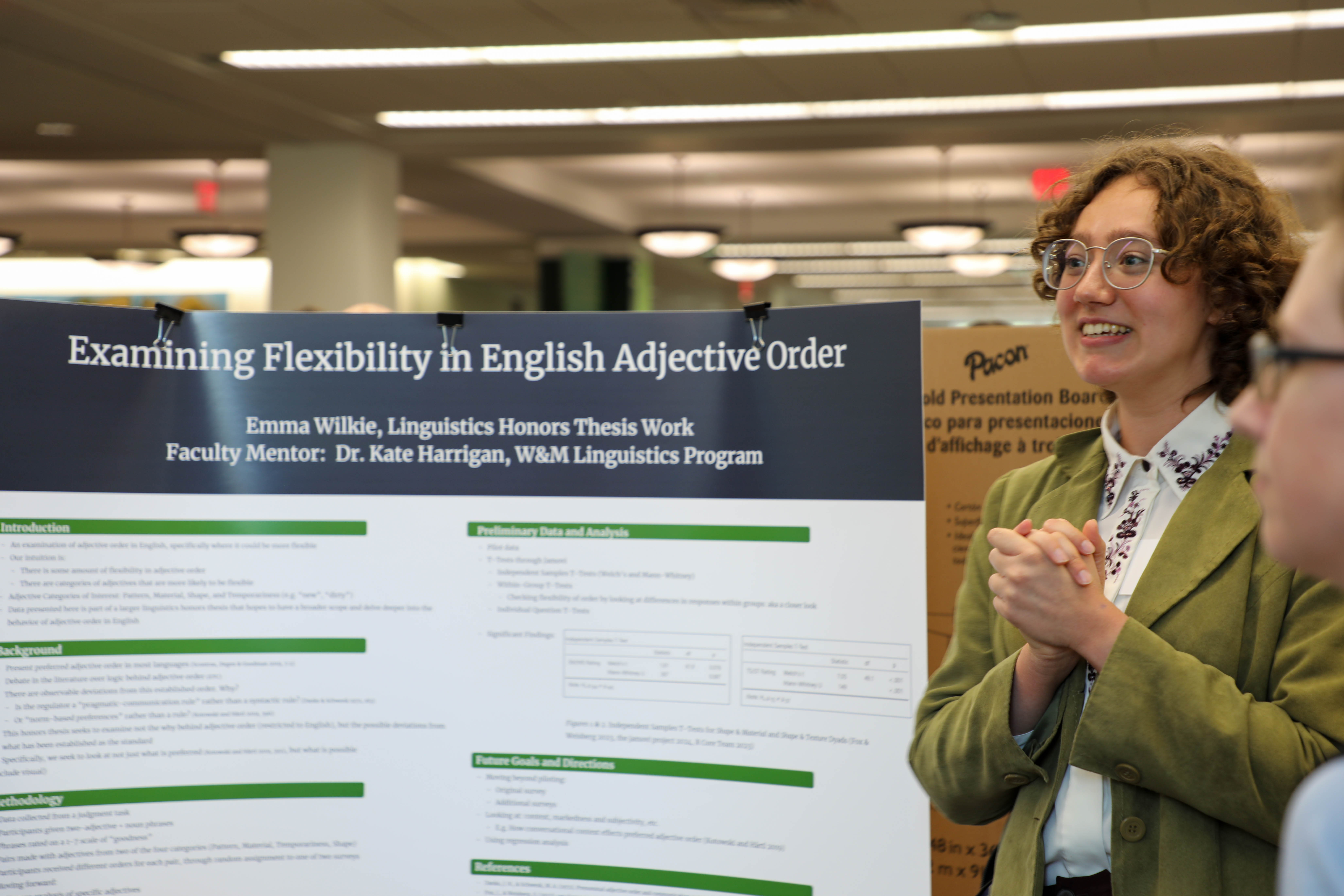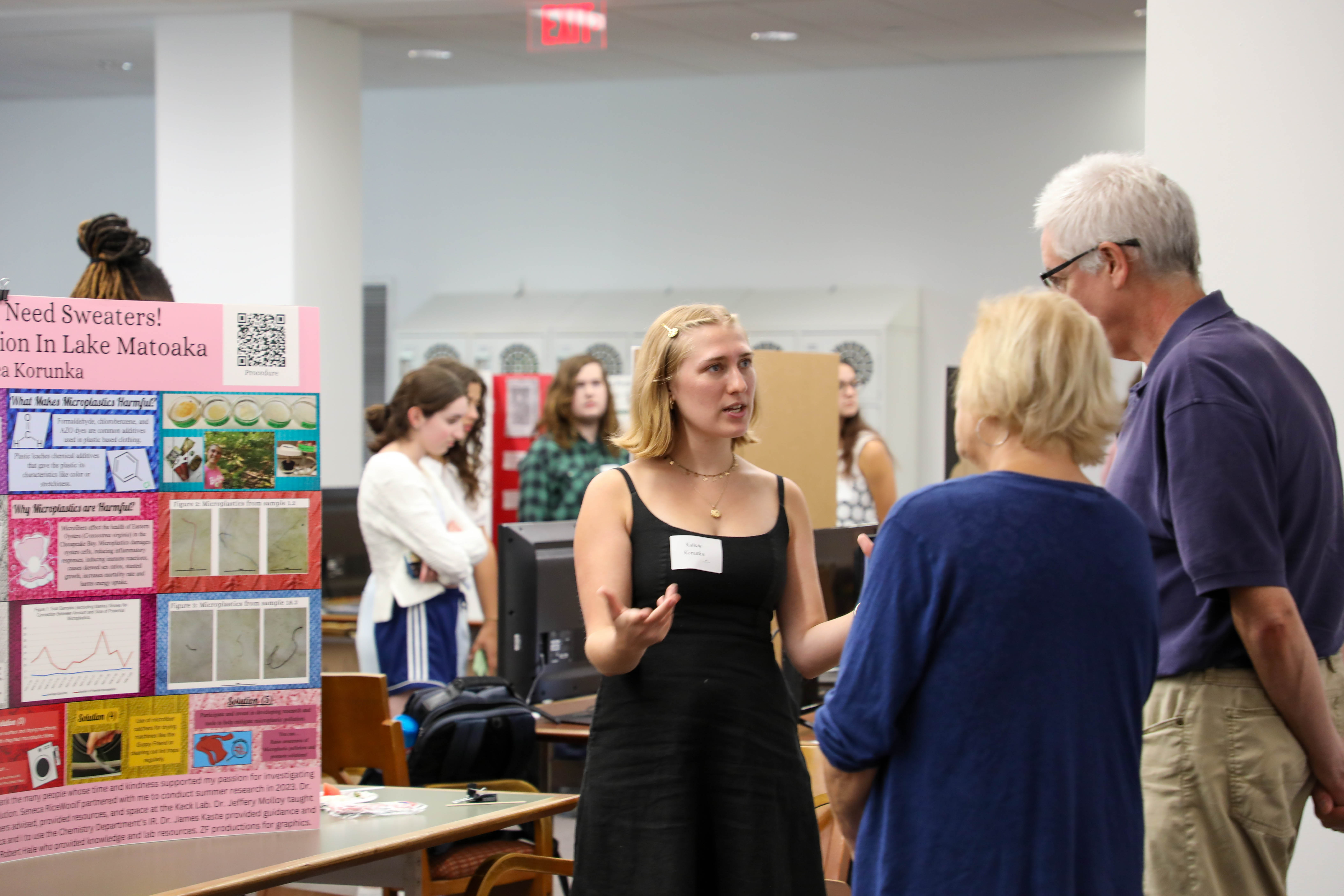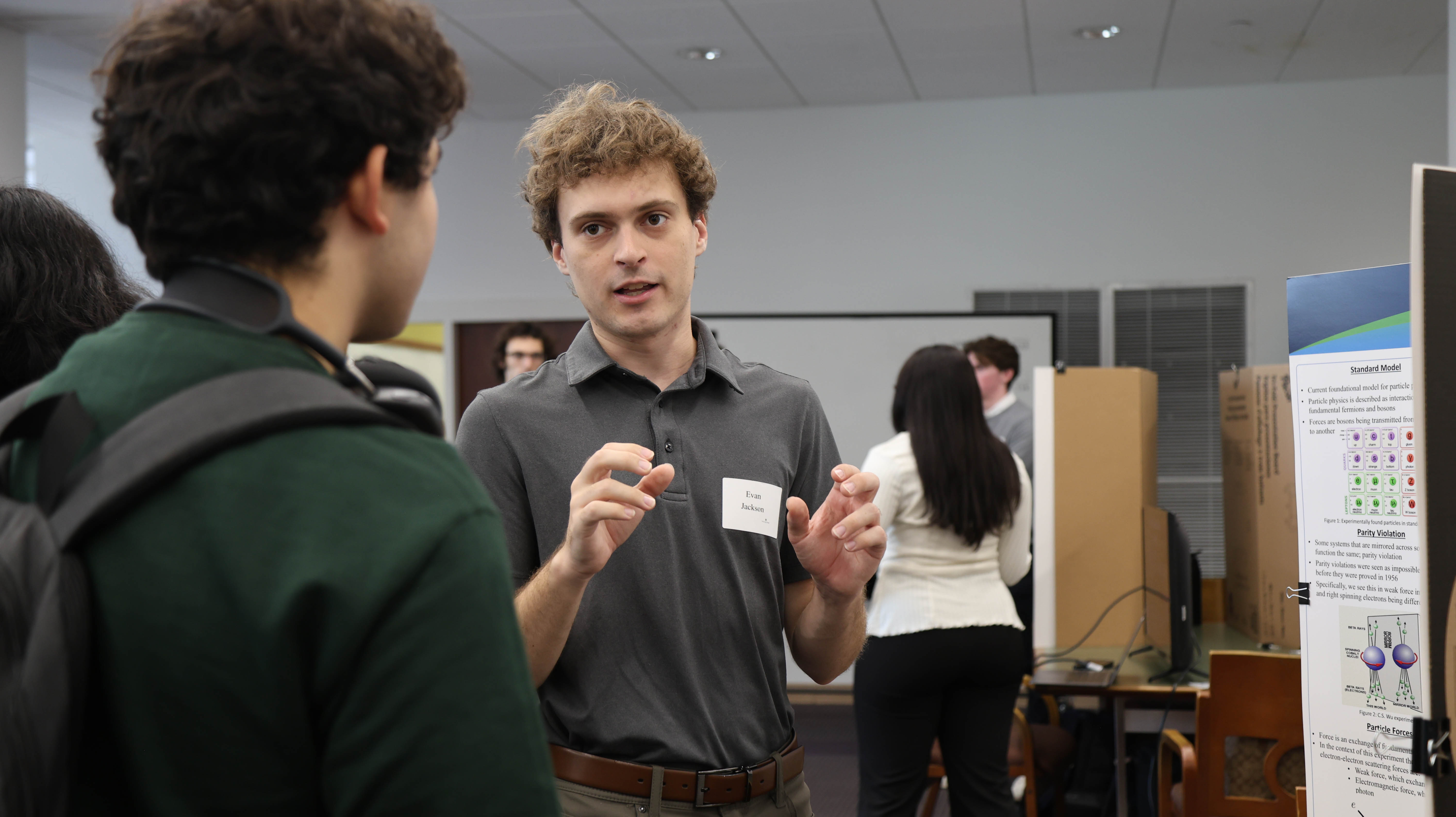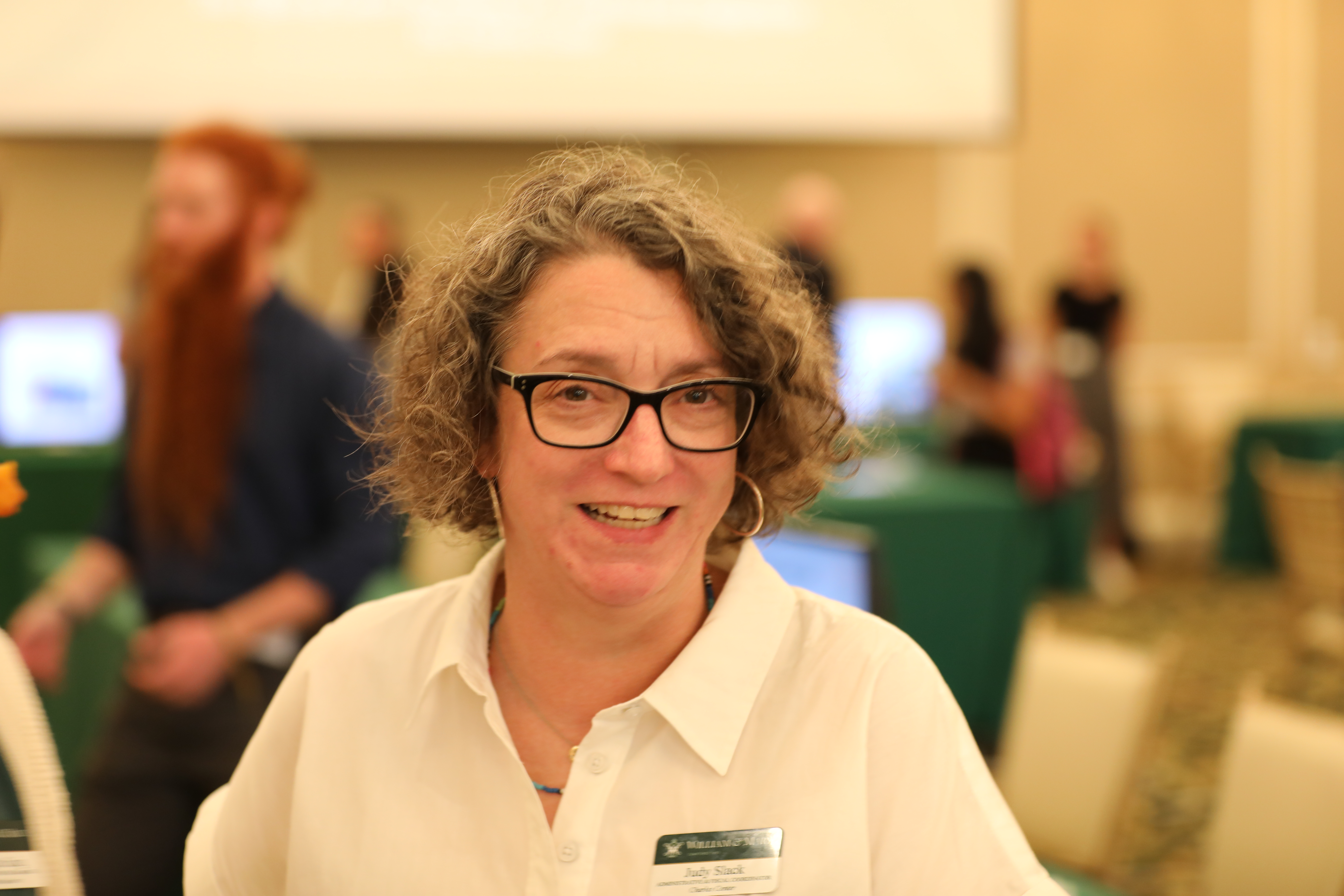Honors program sees record enrollment, nurtures curiosity
 Encompassing all major disciplines and spanning over 36 departments, William & Mary’s departmental honors program saw a record number of applicants this year, with 198 students seeking the opportunity to design their own research and write an honors thesis.
Encompassing all major disciplines and spanning over 36 departments, William & Mary’s departmental honors program saw a record number of applicants this year, with 198 students seeking the opportunity to design their own research and write an honors thesis.
Judith Slack, Charles Center administrative and fiscal coordinator, administers the university's honors program and said that this year’s enrollment is part of a larger trend since the COVID-19 pandemic. Though future enrollment “depends on what kind of research is being fostered and how much we get the word out,” Slack estimates that the program will continue to grow in the coming years.
The thesis process differs across departments and programs and typically begins during a student’s second semester of their junior year with the submission of a thesis proposal to their advisor. During their senior year, the research culminates in an oral defense in the spring semester. Honors students who wish to begin their research the summer before their senior year are encouraged to apply for a Charles Center Honors Fellowship, which provides summer research funding to honors students.
 For many, summer research funding proves to be transformative. Kaleea Korunka ’25, a chemistry and self-designed environmental issues major investigating microplastics in Lake Matoaka, has been researching her thesis topic with the support of the Charles Center summer research grant since her first year. The honors program, she said, was “really just an excuse for me to take it really seriously and just dive head into it.”
For many, summer research funding proves to be transformative. Kaleea Korunka ’25, a chemistry and self-designed environmental issues major investigating microplastics in Lake Matoaka, has been researching her thesis topic with the support of the Charles Center summer research grant since her first year. The honors program, she said, was “really just an excuse for me to take it really seriously and just dive head into it.”
But it has not been easy, Korunka confesses. She emphasized how difficult an honors thesis can be, running into obstacles time and time again. Luckily, she said, “I have a support network. I have a lot of different people at other universities and colleges who know the research I'm doing and I'm reaching out for help constantly, and they already have a good idea of what I'm doing.”
Having the support to start her research early has made a world of a difference. “It just makes the work I'm currently doing just so much more multifaceted,” Korunka said.
Support from faculty and other undergraduate researchers has been a defining feature of the honors program, said Sunjeong Bailey ’25, a government and religious studies double major studying the recent canonization of St. Carlo Acutis.
“Throughout this entire process I feel extremely supported and confident that I can just ask a question if I need to,” Bailey shared. “I know the religious studies department is just full of professors who are really engaged and they really want you to succeed. And even if they aren't specializing in what you want to look at, they're willing to basically do anything to make it work.”  As she seizes the opportunity to make a major contribution to the small body of existing literature on her topic, Bailey says she is grateful for the connection she has forged with her advisor and the wealth of support she continues to receive.
As she seizes the opportunity to make a major contribution to the small body of existing literature on her topic, Bailey says she is grateful for the connection she has forged with her advisor and the wealth of support she continues to receive.
Cheryl Dickter, director of graduate studies and professor of psychology, said the connections advisors build with their honors students is “the best part of William & Mary.” Often working with underrepresented students, Dickter enjoys collaborating on research design, encouraging them to bring their own experiences to the field, and assisting them with publication of their theses after graduation.
“They're just completely different researchers and people at the end of it. So, it's really satisfying for us too. It's not just us working hard to support the students,” Dickter said. “It's really rewarding for us.”
For Deborah Morse, National Endowment for the Humanities professor of English, these relationships are lifelong. Morse shared that she still keeps in contact with her past honors students and is even attending the wedding of one of her former students later this year.
 Morse attributes the close relationships she shares with her students to how much time they spend together while collaborating on a student’s thesis. At each meeting, Morse asks “What are you most interested in? What is striking you each time?” At each weekly meeting, for over a year, they “end up reading every word together and going over the entire thesis together, word for word.”
Morse attributes the close relationships she shares with her students to how much time they spend together while collaborating on a student’s thesis. At each meeting, Morse asks “What are you most interested in? What is striking you each time?” At each weekly meeting, for over a year, they “end up reading every word together and going over the entire thesis together, word for word.”
Morse especially admires the dedication and persistence it requires to “see a huge project like that through until the end.” In any field, Morse said, “dedication like that is a valuable skill.”
Benjamin Boateng ’25, a sociology major researching volunteer police officers in the Washington D.C. area, is one of many honors students who plan on taking their thesis work with them after graduation. Boateng said the research experience he has gained working on his honors thesis has been a major advantage.
“It’s super helpful for me now that I'm looking to apply to PhD programs,” Boateng said. “I can really leverage this funding and this research I have to say, hey, I want to do more of this type of research in the future and here's the evidence I have that I can do it.”
Even as these honors students navigate the ups and downs of completing a thesis, they all share that they pursue their research because of the joy and sense of accomplishment it brings. In short, they could not imagine doing anything else.
"That’s the basis for most of my research,” Bailey said. “Why I do my research is just because I love it.”
The Charles Center website archives a list of completed student honors theses, and current honors students will showcase their work at the Spring Honors Research Symposium, to be held in Sadler Center April 3-5, 2025.



















